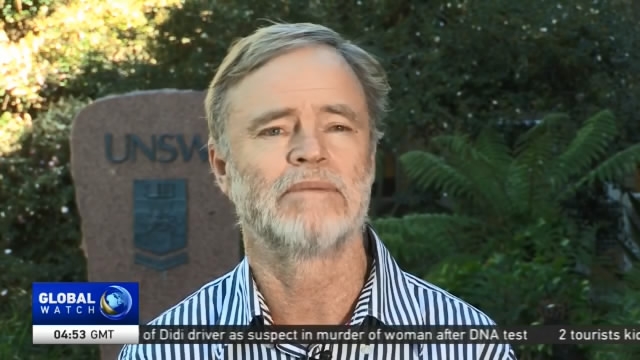
13:52, 12-May-2018
International Migratory Bird Day: Australia working to protect fragile ecosystems
02:06

Today marks the INTERNATIONAL MIGRATORY BIRD DAY. Scientists say the world's wetlands are disappearing. Those wetlands play a crucial role for humans, and a wide range of species. But one Australian researcher is using a unique approach to protect those fragile ecosystems, and the birds that depend on them. Greg Navarro has this story.
When Kate Brandis set out to study the movements of wetland birds, she hoped to solve a scientific mystery.
Kate Brandis, Research Fellow, Centre for Ecosystem Science, University of New South Wales "Many of our birds come to wetlands when they are full of water and then move when the wetlands dry up they disappear and we don't know where they go in the meantime, or where they come from."
The problem was that Brandis couldn't possibly visit the hundreds of wetlands around Australia, so she put out a call for the public's help.
2 years later, her University of New South Wales lab is cluttered with almost one-thousand envelopes sent from citizen scientists, each containing feathers.
GREG NAVARRO SYDNEY "One of the amazing thing about feathers is that they contain a protein that's also found in our fingernails called keratin, which stores information about what the birds eat."
"Each wetland is different and has a different dietary source, different menus, so we can work out which wetlands birds have visited based on their feathers."
Wetlands play a range of vital roles - from providing critical habitats for species, to improving water quality and minimising flood damage. But scientists say these delicate ecosystems are under increasing threat from human activity.
PROFESSOR RICHARD KINGSFORD, DIRECTOR ECOSYSTEM SCIENCE, UNI. OF NEW SOUTH WALES "We've lost a lot of the world's wetlands and in Australia in some parts we've lost at least 50% and maybe more in places like the Murray Darling Basin and that has huge impacts on the river systems but also the plants and animals."
Brandis believes understanding the movements of water birds can help reverse their decline and ultimately benefit their habitats.
KATE BRANDIS, RESEARCH FELLOW ECOSYSTEM SCIENCE, UNI. OF NEW SOUTH WALES "By knowing which wetlands they are using we can improve our management of those sites."
And Brandis says help to protect the wetlands that remain before they and the species that depend on them, disappear. Greg Navarro, CGTN, Sydney.

SITEMAP
Copyright © 2018 CGTN. Beijing ICP prepared NO.16065310-3
Copyright © 2018 CGTN. Beijing ICP prepared NO.16065310-3